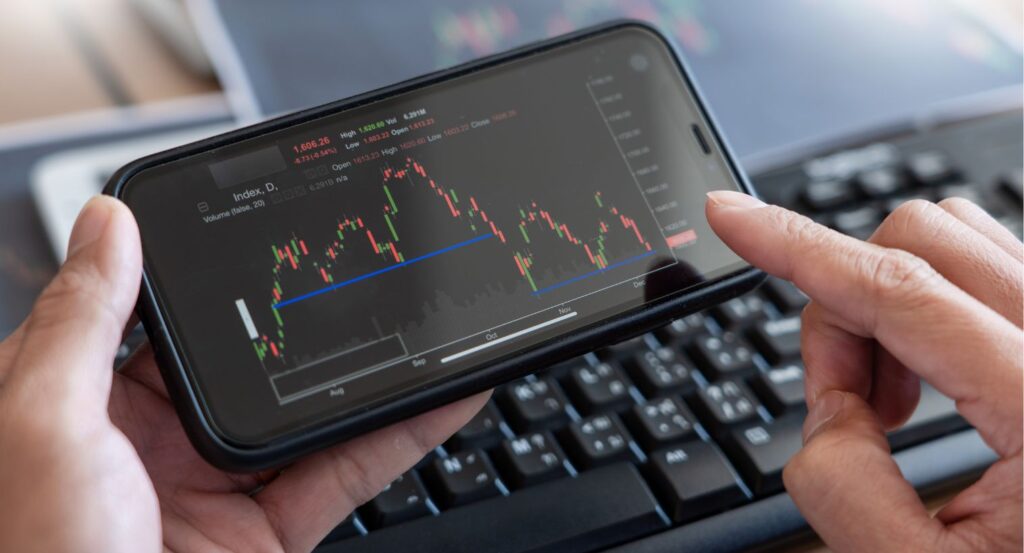When you think about trading in the financial markets, you might picture individual investors or large institutional firms making trades on their own behalf. However, there exists a unique category of trading entities known as proprietary trading firms, or prop firms. Unlike traditional trading firms that primarily manage client funds, prop firms use their own capital to trade various financial instruments.
This distinction is crucial, as it allows prop firms to take on higher risks and pursue more aggressive trading strategies without the constraints typically associated with managing external client money. Prop firms play a significant role in the financial markets by providing liquidity and facilitating price discovery. They engage in various trading activities, including equities, options, futures, and forex, often employing sophisticated algorithms and strategies to capitalize on market inefficiencies.
By leveraging their own capital, these firms can react quickly to market changes and execute trades at a speed that individual traders may find challenging to match. This agility not only benefits the prop firms themselves but also contributes to the overall efficiency of the markets.
Key Takeaways
- Prop firms operate differently from traditional trading firms and play a significant role in the financial markets.
- Funded accounts are used by prop firms, and the process of obtaining one involves specific requirements.
- Proprietary trading is significant in prop firms, and various strategies and techniques are used in this type of trading.
- Risk management is crucial in prop firms, and specific tools and methods are used to manage risk in proprietary trading.
- Profit sharing agreements and the distribution of profits among traders and the firm are important aspects of prop firms.
Funded Accounts
A fundamental aspect of prop firms is the concept of funded accounts. These accounts are essentially trading accounts that are financed by the firm itself, allowing traders to execute trades without risking their own capital. In this arrangement, traders are given access to a certain amount of funds, which they can use to trade various instruments.
The beauty of funded accounts lies in the opportunity they provide for traders to gain experience and potentially earn profits without the financial burden of personal investment. To obtain a funded account, you typically need to go through a selection process that may include an evaluation phase. This phase often involves demonstrating your trading skills through a simulated trading environment or a trial period where your performance is closely monitored.
Requirements can vary from one prop firm to another, but they generally include a minimum level of trading experience, adherence to risk management protocols, and the ability to demonstrate consistent profitability over a specified period. Successfully navigating this process can open doors to significant trading opportunities.
Proprietary Trading

Proprietary trading is at the heart of what prop firms do. It refers to the practice of trading financial instruments using the firm’s own capital rather than client funds. This approach allows prop firms to engage in a wide range of trading strategies, from high-frequency trading to long-term investments.
The significance of proprietary trading lies in its potential for high returns; since the firm retains all profits generated from successful trades, there is a strong incentive for traders to perform well. In proprietary trading, various strategies and techniques are employed to maximize returns while managing risk. Traders may utilize quantitative models, technical analysis, or fundamental analysis to identify potential opportunities in the market.
Additionally, many prop firms invest heavily in research and development to create proprietary algorithms that can analyze vast amounts of data and execute trades at lightning speed. This combination of human intuition and technological prowess often leads to innovative trading strategies that can outperform traditional methods.
Risk Management
Risk management is a cornerstone of successful trading in prop firms. Given the inherent volatility of financial markets, it is essential for traders to implement robust risk management practices to protect both their capital and the firm’s assets. Effective risk management involves identifying potential risks, assessing their impact, and developing strategies to mitigate them.
This discipline is particularly crucial in proprietary trading, where the stakes are high and losses can accumulate quickly. Prop firms employ various tools and methods to manage risk effectively. These may include setting strict stop-loss orders, diversifying trading positions across different asset classes, and utilizing advanced analytics to monitor market conditions in real time.
Additionally, many firms have established risk limits for individual traders, ensuring that no single trade can jeopardize the overall health of the firm. By fostering a culture of risk awareness and discipline, prop firms can navigate the complexities of the financial markets while safeguarding their capital.
Profit Sharing
One of the most appealing aspects of working with a prop firm is the profit-sharing agreement that typically exists between traders and the firm. In this arrangement, traders receive a percentage of the profits generated from their trades, creating a strong incentive for them to perform well. The specifics of profit-sharing agreements can vary widely among firms; some may offer a higher percentage for more experienced traders or those who consistently achieve high returns.
Understanding how profits are distributed is essential for any trader considering joining a prop firm. Generally, after deducting any fees or costs associated with trading activities, the remaining profits are split between the trader and the firm according to the agreed-upon terms. This structure not only motivates traders to maximize their performance but also aligns their interests with those of the firm.
As traders succeed and generate profits, both they and the firm benefit from this collaborative approach.
Regulatory Considerations

The regulatory landscape for prop firms and proprietary trading is complex and varies significantly across different jurisdictions. In many countries, prop firms must adhere to specific regulations designed to protect investors and maintain market integrity. These regulations often require firms to register with relevant authorities and comply with rules governing capital requirements, reporting standards, and risk management practices.
Understanding these regulatory considerations is crucial for anyone involved in proprietary trading. Compliance with regulations not only helps protect traders but also enhances the credibility of prop firms within the financial community. As markets evolve and new regulations emerge, prop firms must remain vigilant in adapting their practices to ensure compliance while continuing to pursue profitable trading strategies.
Technology and Infrastructure
In today’s fast-paced financial markets, technology plays an indispensable role in the operations of prop firms. From sophisticated trading platforms to advanced analytics tools, technology enables traders to execute trades efficiently and manage their positions effectively. Prop firms invest heavily in cutting-edge infrastructure that allows them to access real-time market data, execute trades at high speeds, and analyze vast amounts of information quickly.
The role of technology extends beyond mere execution; it also encompasses risk management and strategy development. Many prop firms utilize algorithmic trading systems that can automatically execute trades based on predefined criteria, reducing human error and increasing efficiency. Additionally, advanced data analytics tools help traders identify trends and patterns in market behavior, allowing them to make informed decisions based on empirical evidence rather than intuition alone.
Training and Development
For aspiring traders looking to break into proprietary trading, training and development programs offered by prop firms can be invaluable. These programs are designed to equip traders with the skills and knowledge necessary to succeed in a competitive environment. Training often includes a combination of theoretical education on market fundamentals and practical experience through simulated trading scenarios.
Mentorship is another critical component of training within prop firms. Experienced traders often take on mentorship roles, guiding newcomers through the intricacies of trading strategies, risk management techniques, and market analysis. This hands-on approach not only accelerates learning but also fosters a collaborative culture within the firm where knowledge sharing is encouraged.
As you progress through your training, you will likely find that continuous learning is essential for adapting to ever-changing market conditions.
Market Access
One of the significant advantages of working with a prop firm is the access it provides to various financial markets. Prop firms typically have established relationships with exchanges and liquidity providers, enabling their traders to execute trades efficiently across multiple asset classes. This access is crucial for taking advantage of market opportunities as they arise.
In addition to direct market access, prop firms often equip their traders with advanced tools and resources for analyzing market conditions. These may include proprietary research reports, real-time data feeds, and sophisticated charting software that allows you to visualize price movements effectively. With these resources at your disposal, you can make informed decisions based on comprehensive market insights rather than relying solely on surface-level information.
Performance Metrics
Evaluating trader performance is essential for prop firms seeking to optimize their operations and identify top talent within their ranks. Various performance metrics are used to assess traders’ effectiveness in generating profits while managing risk appropriately. Common metrics include return on investment (ROI), win-loss ratio, average trade duration, and drawdown levels.
Understanding how you will be measured as a trader is crucial for your success within a prop firm environment. Regular performance reviews provide valuable feedback on your strengths and areas for improvement, allowing you to refine your strategies over time. By focusing on these metrics and striving for continuous improvement, you can enhance your performance and contribute positively to the firm’s overall success.
Future Outlook
As you look toward the future of prop firms and proprietary trading, it becomes clear that this sector faces both challenges and opportunities in an evolving financial landscape. The rise of technology-driven trading strategies has intensified competition among prop firms while also creating new avenues for innovation. As markets become increasingly interconnected and data-driven, those who can adapt quickly will likely thrive.
However, challenges such as regulatory scrutiny and market volatility cannot be overlooked. Prop firms must navigate these complexities while continuing to attract top talent and develop effective trading strategies. By embracing technological advancements and fostering a culture of continuous learning, prop firms can position themselves for success in an ever-changing environment.
In conclusion, proprietary trading firms represent a dynamic segment of the financial markets that offers unique opportunities for traders willing to embrace risk and innovation. With their focus on funded accounts, profit sharing, risk management, and advanced technology, prop firms provide an environment where skilled traders can thrive while contributing significantly to market liquidity and efficiency.
If you are interested in learning more about the risks associated with trading, you may want to check out this article on CFD traders losing over $51 million. This article highlights the potential dangers of trading and the importance of conducting thorough research before investing your money. It serves as a cautionary tale for those considering entering the world of trading, especially with prop firms.
FAQs
What is a prop firm?
A prop firm, short for proprietary trading firm, is a financial firm that trades its own capital in the financial markets, rather than on behalf of clients.
How does prop trading work?
Prop trading involves using the firm’s own money to make speculative trades in various financial instruments such as stocks, bonds, commodities, and derivatives. Traders at prop firms are typically compensated based on the profits they generate for the firm.
What are the key characteristics of a prop firm?
Prop firms typically provide traders with access to the firm’s capital, trading infrastructure, and risk management tools. They may also offer training and mentorship to help traders develop their skills.
What are the benefits of working for a prop firm?
Working for a prop firm can provide traders with access to significant capital, advanced trading technology, and the opportunity to earn substantial profits based on their trading performance.
What are the risks of prop trading?
Prop trading can be highly risky, as traders are using the firm’s capital and may face significant financial losses if their trades are unsuccessful. Additionally, prop traders may be subject to strict risk management and performance targets set by the firm.

